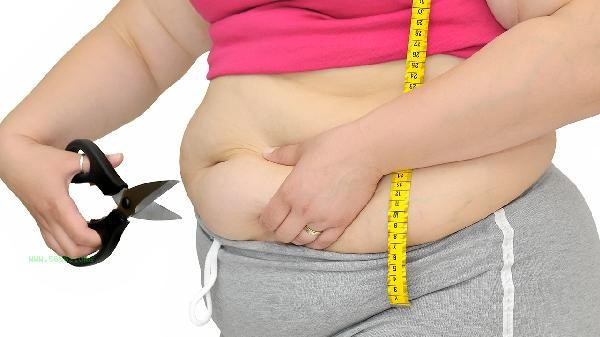After dieting to lose weight, physical weakness can be improved by adjusting the diet structure, supplementing key nutrients, gradually restoring exercise, ensuring sufficient sleep, monitoring body indicators, and other methods. This situation is usually caused by insufficient calorie intake, electrolyte imbalance, muscle loss, decreased metabolic rate, and excessive psychological stress.

1. Adjust dietary structure:
Daily calorie intake should gradually return to 1.2 times the basal metabolic rate, adopting a small and frequent meal pattern. Prioritize choosing compound carbohydrates with moderate glycemic index, such as oats and brown rice, paired with high-quality proteins like eggs and fish. The main source of fat intake is unsaturated fatty acids, with avocados and nuts providing essential fatty acids. The proportion of vegetables in each meal should not be less than 50%, and dark green leafy vegetables are rich in minerals.
2. Supplementing key nutrients:
focuses on supplementing easily deficient nutrients such as iron, zinc, and B vitamins. Animal liver and red meat can improve iron deficiency anemia, while oysters and pumpkin seeds have high zinc content. Whole grains and dairy products can supplement vitamins B1 and B2, and if necessary, multivitamin preparations can be used under the guidance of a doctor. Daily drinking water should contain an appropriate amount of sodium and potassium electrolytes, and can be diluted with salt water or coconut water.
3. Progressive recovery exercise:

Start with low-intensity aerobic exercise, such as 15 minutes of brisk walking or swimming per day, and increase the exercise duration by 5 minutes per week. Add resistance training in two weeks, using elastic bands or self weight training, with a focus on exercising large muscle groups. Warm up and stretch thoroughly before and after exercise, and keep your heart rate below 220% of age by 60%. Stop immediately if you experience discomfort such as dizziness.
4. Ensure adequate sleep:
Ensure 7-9 hours of high-quality sleep per day, and the deep sleep stage helps with growth hormone secretion. Avoid blue light exposure 2 hours before bedtime and maintain a bedroom temperature of 18-22 ℃. You can practice 10 minutes of meditation or deep breathing exercises. For those with insufficient melatonin secretion, you can consult and control your lunch break within 30 minutes to avoid affecting your nighttime sleep cycle.
5. Monitoring physical indicators:
Measure the resting heart rate in the morning every week, and seek medical attention if it remains above 80 beats per minute. Regularly check blood routine, liver and kidney function, and pay attention to albumin and prealbumin levels. The body fat scale monitors changes in muscle mass, with monthly weight fluctuations not exceeding 2 kilograms. When symptoms such as persistent fatigue and amenorrhea occur, it is necessary to investigate thyroid dysfunction or malnutrition related diseases. During the recovery period, a sustainable dietary pattern should be established, and the Mediterranean diet or DASH diet plan is recommended. The main cooking method is steaming and stewing, avoiding high-temperature frying. Record daily diet and physical sensations, gradually finding a personalized energy balance point. Long term strict restriction of certain nutrients may lead to binge eating tendencies. It is recommended to seek a nutritionist to develop personalized plans. During the rehabilitation stage, physical and mental training such as yoga and Pilates can be combined to enhance the core muscle group without causing excessive consumption. Maintaining a regular schedule can help stabilize cortisol levels and avoid stressful eating. If there is still significant discomfort after three months, it is necessary to go to the endocrinology department or clinical nutrition department for professional evaluation.





Comments (0)
Leave a Comment
No comments yet
Be the first to share your thoughts!